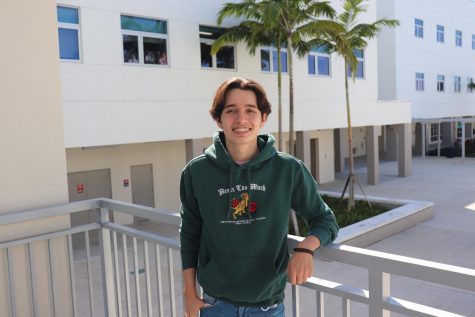An Analysis of The Antibody Cocktail Trump Received
October 12, 2020
On Oct. 1, President Donald Trump tested positive for SARS COVID-19 via rapid test following a visit to a campaign fundraiser in Bedminster, New Jersey.
Following a second more thorough test on Thursday, the President tweeted that he had tested positive for COVID on Friday, Oct. 2.
That same day, the White House announced that Trump received an experimental antibody treatment for COVID-19, which Trump later referred to as a cocktail and nothing less than a cure for the COVID-19.
During this time, Trump had reportedly been showing mild symptoms of COVID-19, which included high fever and low oxygen saturation.This resulted in his being transferred to the Walter Reed National Medical Center.
The name of this proclaimed antibody cocktail is officially REGN-COV2, also known as Regeneron — after the Regeneron Pharmaceutical company which produces the treatment.
On Oct. 7, the Regeneron Pharmaceuticals applied for emergency approval of the treatment from the Food and Drug Administration as they began to manufacture the treatment. Although their FDA application outlined manufacturing enough doses for just 50,000 patients, Regeneron has mentioned expecting to have enough doses for 300,000 patients within the next couple of months.
Currently, REGN-COV2 remains unavailable for those outside of their experimental trials. The charge for treatment if distributed commercially currently remains unknown. However, Regeneron Pharmaceuticals signed a $450 million contract with the government to supply the treatment.
In their government contract, they aim to treat approximately between 70,000 to 1.3 million patients. This results in a lack of a definite answer for the treatments overall cost, ranging from $346 a treatment if they produce enough for 1.3 million patients to $6,500 per treatment they only produce 70,000 doses.
Despite this, Regeron released a statement explaining that if an emergency authorization for REGN-COV2 faces approval, under its contract with the government the doses would become available to the American public at no cost under government coverage.
The reasoning behind REGN-COV2 being described as a drug cocktail involves the fact that it consists of two antibodies designed to attract the virus. The concept revolves around the fact that the different antibodies bind themselves to the surface of the virus preventing the virus to attach to other healthy cells within the body. The antibodies come from people who have contracted COVID-19 and recovered, the rest comes from mice who have been injected with COVID-19.
It remains unknown whether REGN-COV2 works as an effective treatment for COVID-19, as their clinical trials have yet to face a peer review. As of September, Regeneron found success in reducing the virus and accelerating recovery. However, the early trial results derive from a small sample of only 275 patients.
Although there were no fetal stem cells present in the final treatment given to Trump, during the development of the treatment, Regeneron admitted to utilizing a cell line from the kidney tissue of a fetus aborted in the Netherlands in the 1970s. Abortion is a topic the Trump administration has taken a stance against, having suspended federal funding for scientific research dealing with stem cells taken from aborted fetuses.
Regeneron explained that the cells were used in the developmental phase to find the most effective antibodies that could best neutralize the virus. Upon finding the best two antibodies, Regeneron created the current formula for the REGN-COV2 cocktail.







